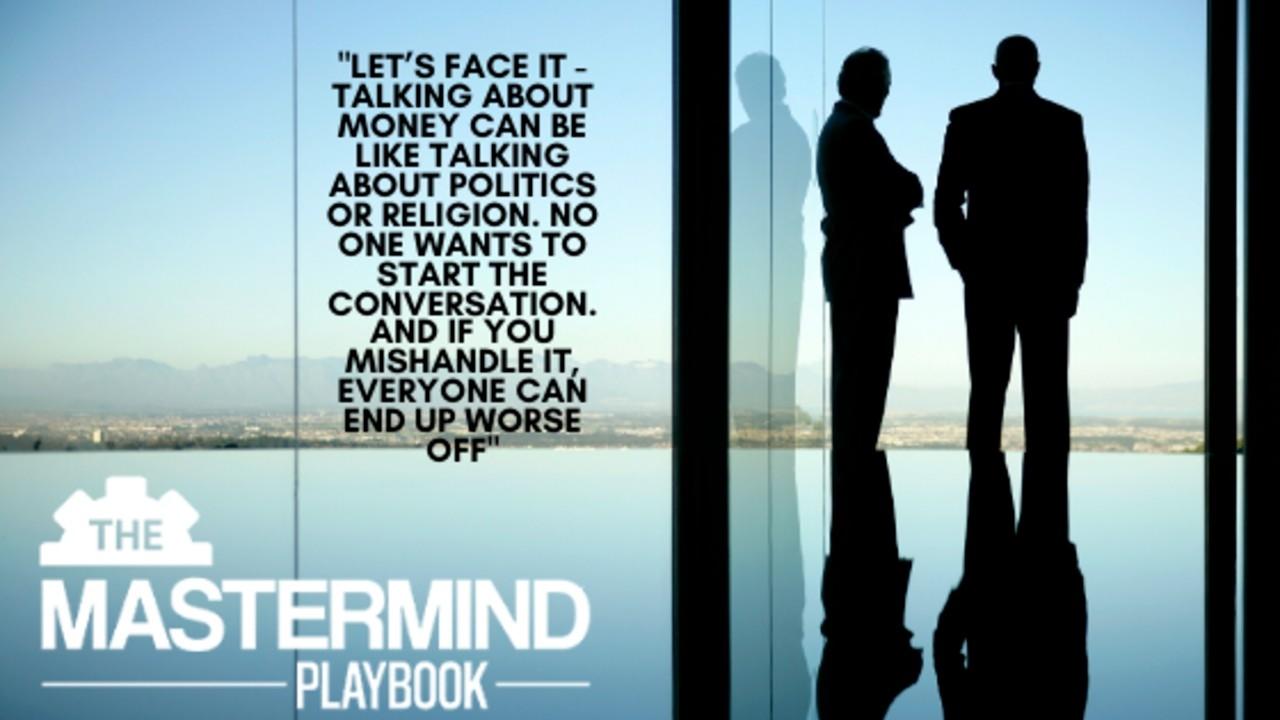The Personal Business Mastermind

In Iron Sharpens Iron this month, we’re deepening the impact on members’ financial health. If our hand wasn’t already forced, this coronavirus phenomenon sealed the deal. We have a lot of work to do!
Although we coach and lead men in all areas of life, this one kept turning up in the feedback. Members of our online mastermind groups would write to ask, “What materials are available for me to accelerate business income?” Or, “How do I increase sales and revenue?”
Those are critical questions. No matter how much we pretend otherwise … making money affects everybody, everywhere.
We assembled an internal team to address this. I wanted members anticipating greater clarity, and definitive answers. When our April live event was canceled, we set about thinking how we could start spreading this content online.
It made me think of master mind group facilitators everywhere. Let’s face it - talking about money can be like talking about politics or religion. No one wants to start the conversation. And if you mishandle it, everyone can end up worse off.
Pros and Cons of a Strict Business Focus
ISI’s focus is broken into percentages. We do about sixty percent business, thirty percent personal and ten percent faith. Among members, we found personal and faith issues vary much wider than business ones. You’re likelier to have people at polar ends of the personal spectrum than anywhere else.
This made it wise, in my opinion, to focus more than half our time on business. But we don’t neglect personal issues. The remaining time gets divided between marriage/family and God.
Now, if you choose to create a purely “business mastermind,” let me assure you - it’s a noble cause. Thriving businesses are almost never a bad thing for local communities and family. A word of caution, however. I agree with business coach Daryl Murrow: people don’t have “business problems.” They have personal problems they bring into their business. If you don’t have a strategy for addressing human dysfunction … human dysfunction will address you.
On the flipside, mastermind groups that focus on purely spiritual or personal issues can also be deficient. If they ignore where most adults spend forty or more of their waking hours per week, that’s also going to have an effect.
Let’s say you’re doing a fat loss mastermind group, but one of your members owns or works in a fast food franchise or donut shop. What problems could this present? How would you offer counsel that doesn’t involve selling their business or quitting their job?
The Mastermind Playbook Approach
Even if you’re choosing to focus on one category, I believe The Mastermind Playbook offers you a safe middle-ground approach. It enables you to address the side you leave blank, without saying as much.
Remember, you’re focused on growth and income for entrepreneurs. You’re not required to say “yes” to anyone who applies. In fact, our counsel is to do the opposite, and be polarizing. By following the interview and application process we developed, it will separate the wheat from the chaff.
If you make clear in your selection process that there is an element of personal growth, your candidates will either accept or reject that level of intimacy. Trust me, you do not want a group full of people whose pride prevents them from growing.
In the same way, a personal development mastermind can be structured to inquire below the surface about a prospect’s professional life. You’ll need to clearly state: you can’t help people grow if they’re blindly spending 40+ hours a week in an environment that works against their progress.
A men’s group dealing with marital and sexual issues, for example, needs to know if one of its members works as a photographer in the fashion or modeling industry. It doesn’t mean they tell him to quit his job. But they can’t help him overcome a problem with lust if they don’t know he spends many waking hours photographing and interacting with beautiful female models.
We’ve built an entire framework for you to remove all the guesswork, and effectively choose the right members for your group.
The Financial Implications
This brings us to awkward conversations about money. As I coach and mentor entrepreneurs, I’m struck by it all the time. Financial illiteracy is rampant, even among business owners. Our public and private education institutions do little to teach people about the hard realities of money.
Many people come from families that fared no better. They grow up thinking money grows on trees. There are far too many detours and speed bumps in the average person’s story to have clear, healthy attitudes and understanding about money.
So even if you're leading a personal development mastermind, you can rely on the old saying, “There’s one in every crowd.” There’s somebody in your mastermind with maxed out credit cards, spending problems or worse. Our culture’s been robbed of its spiritual foundation. Far too many misunderstand why money is hard to acquire and easy to lose.
You risk more than offense if you don’t address the subjects of earning, saving, investing and spending. We’ve taken pains to present this without resorting to shame or diminishing anyone. This week, our members of ISI take the very first steps into the financial sides of authenticity, transparency and vulnerability.
We spelled out four distinct stages of financial literacy - Learning, Living, Leveraging and Leaving a Legacy. I encourage you to begin thinking about something like this for your mastermind group.
In the meantime, you should also stop by The Mastermind Playbook to learn about ways we can shorten the “struggle cycle” of starting your own group.

